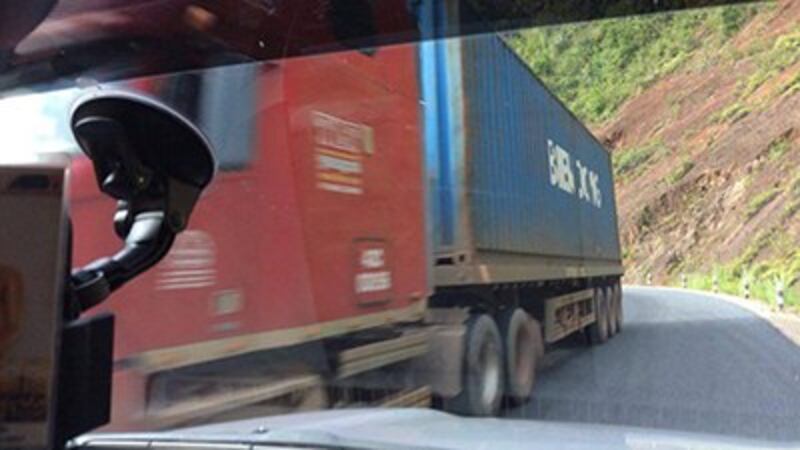The Communist Party of Laos has removed the governor of Attapeu province for his involvement in an illegal logging incident, among other examples of mismanagement, according to official sources.
The Politburo issued an order earlier this month reassigning Nam Viyaketh to work with the country’s National Social and Scientific Council. He was replaced by Attapeu deputy governor Leth Xaiyaphone in a Nov. 21 handover ceremony at the provincial government headquarters.
Speaking at the ceremony, Lao Vice President Phankham Viphavanh declared that the “reshuffle of high-ranking leaders is being done in accordance with job requirements for the new era.”
But while the government has downplayed the reason for the reassignment, officials told RFA’s Lao Service on condition of anonymity that Nam was removed because of his family’s association with illegal logging, land grabs, and embezzlement.
In May, authorities seized a convoy of 27 trucks of logs owned by Nam’s wife Seng Viyaketh at the Phoukeua International Border Checkpoint, which regulates crossings into western Vietnam’s Kon Tum province.
While Nam and his wife denied involvement at the time, an official source who inspects timber in the southern provinces of Laos told RFA Wednesday that the governor’s dismissal was directly related to the incident.
“There are many reasons [for his reassignment], including the embezzlement of state funds, but the outstanding issue is that he and his family are associated with the 27 logging trucks seized at Attapeu’s Phoukeua International Border Checkpoint,” the source said.
“Other main issues include conflict of interest for his family and more than 1 trillion kip (U.S. $120 million) that went missing from the budget.”
An Attapeu official who asked to remain unnamed said Wednesday that Nam’s colleagues had been calling for his removal for months.
“The majority of state officials in this province say that the governor should have been removed much earlier, because he has achieved nothing since taking office, other than grabbing land and money to enrich himself,” the official said.
“He has taken over land from in front of the Dokchampa Hotel in Laksam village, land to build his own private golf course, and much of the land surrounding his home near the Sekamane Bridge 2 in the provincial capital’s Samakhixay district.”
Nam is the son of late revolutionary hero Lieutenant General Samane Viyakheth, who was also formerly the Lao deputy minister of national defense and president of the National Assembly, the country’s rubber stamp parliament.

Rampant corruption
High ranking officials in Attapeu are regularly involved in illegal logging and cross-border sales, despite a ban on the export of timber issued by Lao Prime Minister Thongloun Sisoulith in May last year as part of a bid to end rampant smuggling to China and Vietnam, where the wood is used to make high-end furniture.
Sources have told RFA that the officials who take bribes to facilitate the smuggling include those from the departments of commerce, forest, public works and transport, custom and tax, and the provincial cabinet office.
Some 10,000 cubic meters (353,150 cubic feet) of illegally harvested timber seized from smugglers in Attapeu province this year has gone missing, likely the result of local authorities looking the other way or actively selling the wood on the black market.
At least 16,000 cubic meters (565,050 cubic feet) of illegally harvested timber was seized from smugglers in Attapeu’s Sanamxay district alone in 2016, sources said, but the State Inspection Authority announced earlier this year that only 3,600 cubic meters (127,150 cubic feet) had been seized throughout the entire province.
Deforestation has been a major problem in the last two decades for Laos, where forests now cover less than 40 percent of the country’s land, according to the Lao Ministry of Natural Resources and the Environment.
Much of the illegal timber is obtained through conversion forestry—clearing areas marked for the development of infrastructure projects such as hydropower dams, road building, and mining operations—which is used as an excuse for large-scale logging that otherwise would not be permitted under Lao law.
Reported and translated by Ounkeo Souksavanh. Written in English by Joshua Lipes.
